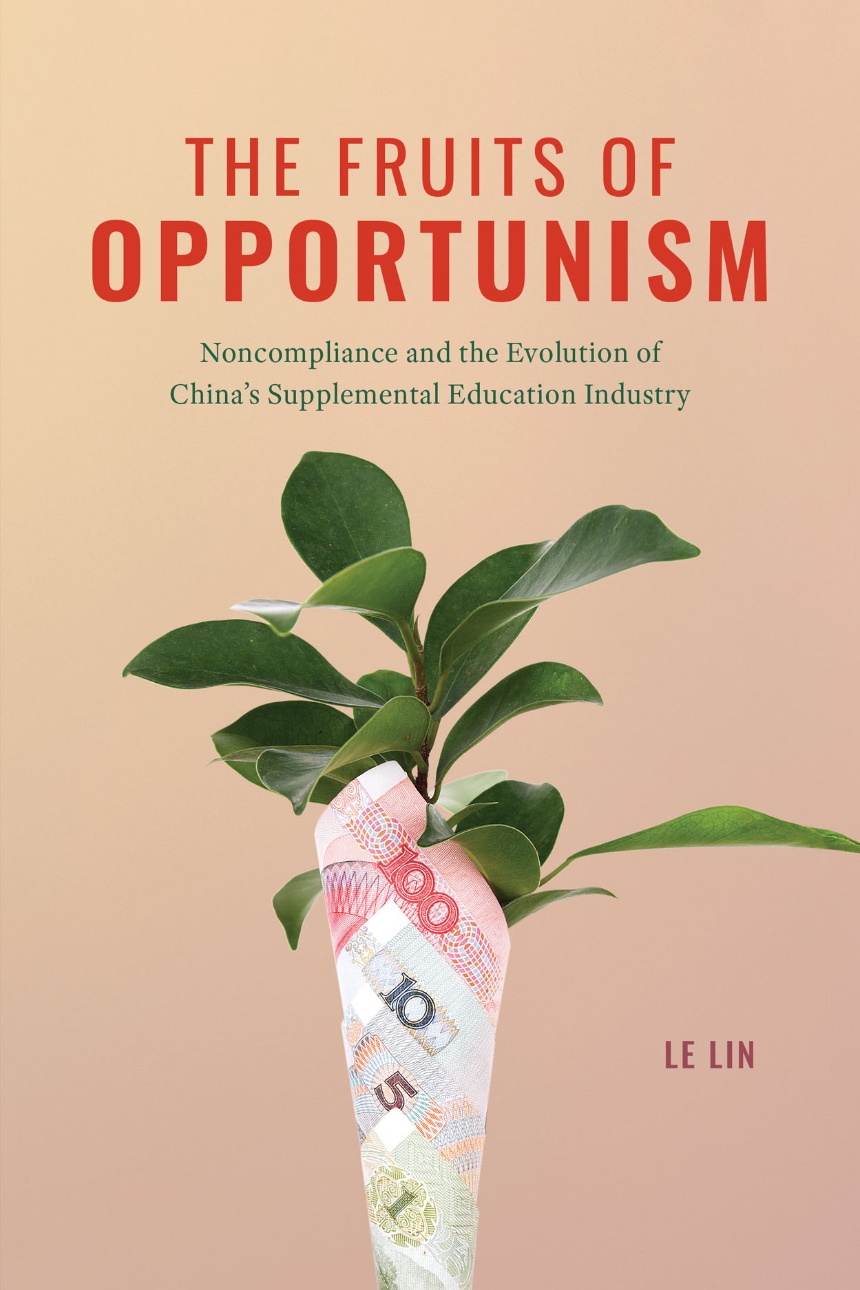The Fruits of Opportunism
Noncompliance and the Evolution of China’s Supplemental Education Industry
The Fruits of Opportunism
Noncompliance and the Evolution of China’s Supplemental Education Industry
An in-depth examination of the regulatory, entrepreneurial, and organizational factors contributing to the expansion and transformation of China’s supplemental education industry.
Like many parents in the United States, parents in China, increasingly concerned with their children’s academic performance, are turning to for-profit tutoring businesses to help their children get ahead in school. China’s supplemental education industry is now the world’s largest and most vibrant for-profit education market, and we can see its influence on the US higher education system: more than 70% of Chinese students studying in American universities have taken test preparation classes for overseas standardized tests. The Fruits of Opportunism offers a much-needed thorough investigation into this industry. This book examines how opportunistic organizations thrived in an ambiguous policy environment and how they catalyzed organizational and institutional changes in this industry.
A former insider in China’s Education Industry, sociologist Le Lin shows how and why this industry evolved to become a for-profit one dominated by private, formal, nationally operating, and globally financed corporations, despite restrictions the Chinese state placed on the industry. Looking closely at the opportunistic organizations that were founded by marginal entrepreneurs and quickly came to dominate the market, Lin finds that as their non-compliant practices spread across the industry, these opportunistic organizations pushed privatization and marketization from below. The case of China’s Education Industry laid out in The Fruits of Opportunism illustrates that while opportunism leaves destruction in its wake, it can also drive the formation and evolution of a market.
248 pages | 3 halftones, 2 line drawings, 9 tables | 6 x 9 | © 2022
Asian Studies: East Asia
Education: Education--Economics, Law, Politics
Sociology: Occupations, Professions, Work, Social Institutions, Social Organization--Stratification, Mobility
Reviews
Table of Contents
Introduction
1 Opportunities for Opportunists: A Theoretical Excursion
Part I When Opportunists Produce Changes
2 Kill Your Competitors
3 Be More Aggressive Than Your Employees
4 Not Much English Taught at Our English School
Part II How Opportunism Persists amid Changes
5 Kidnapping Kids for Their Own Good
6 There Are No Professional Managers in China
7 Who Cares about Tuition Money
Conclusion
Appendix: List of All SEOs and Data Source
Acknowledgments
Notes
References
Index
Awards
Asia and Asian America section, American Sociological Association: Asia/Transnational Book Award
Won
